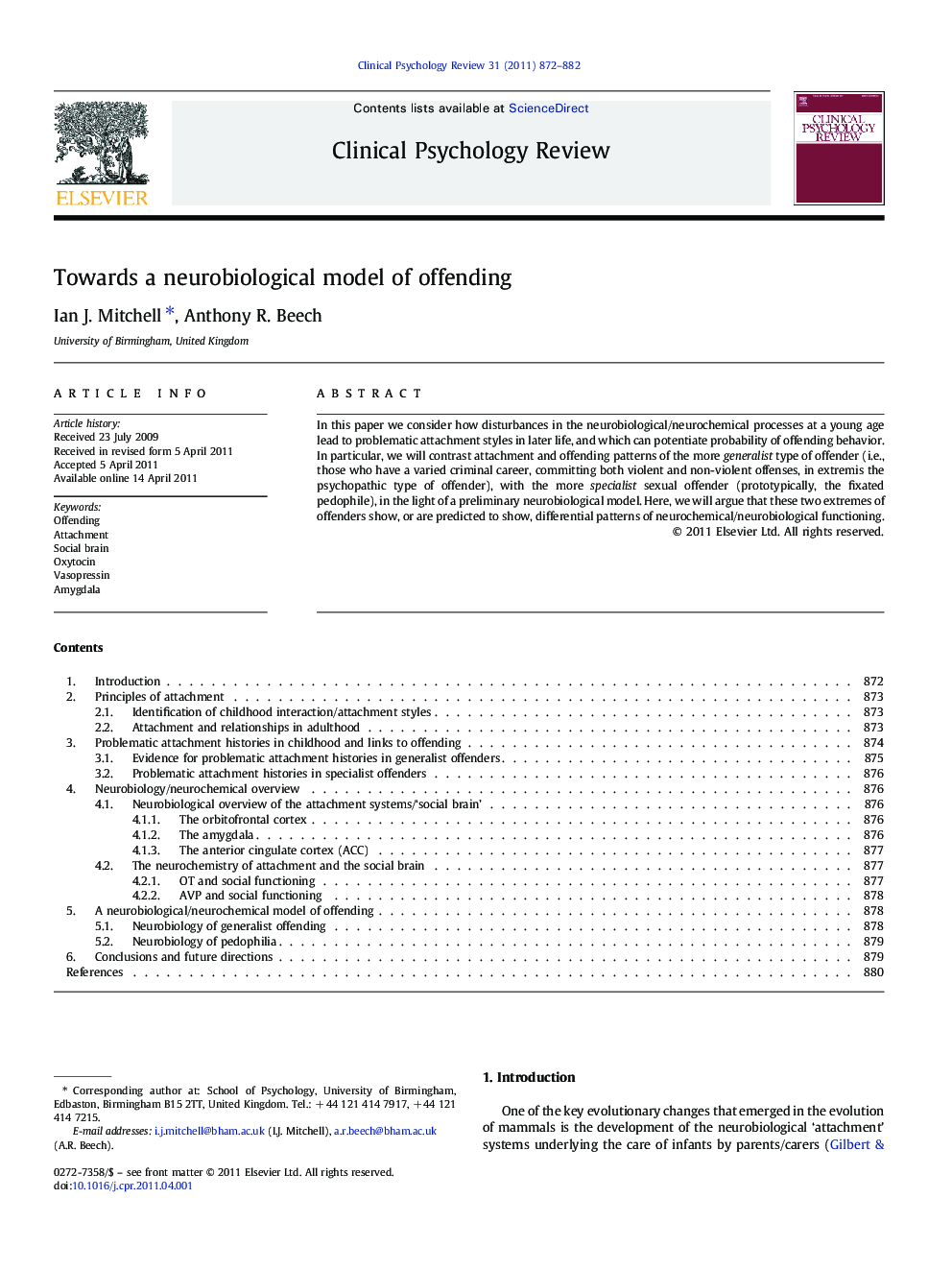| Article ID | Journal | Published Year | Pages | File Type |
|---|---|---|---|---|
| 903783 | Clinical Psychology Review | 2011 | 11 Pages |
In this paper we consider how disturbances in the neurobiological/neurochemical processes at a young age lead to problematic attachment styles in later life, and which can potentiate probability of offending behavior. In particular, we will contrast attachment and offending patterns of the more generalist type of offender (i.e., those who have a varied criminal career, committing both violent and non-violent offenses, in extremis the psychopathic type of offender), with the more specialist sexual offender (prototypically, the fixated pedophile), in the light of a preliminary neurobiological model. Here, we will argue that these two extremes of offenders show, or are predicted to show, differential patterns of neurochemical/neurobiological functioning.
Research Highlights► Childhood abuse histories can lead to disturbed neurobiological/neurochemical functioning. ► Disturbed neurobiological/neurochemical processes can lead to problematic attachment styles. ► Problematic attachment can potentiate generalist/specialist offending behaviors. ► These types of offenders will show differential patterns of neurochemical/neurobiological functioning.
